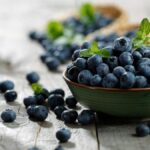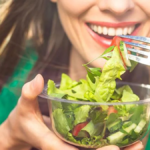In Spain, soy and its derivatives remain occasional dietary choices, contrasting sharply with their essential role in East Asian diets, particularly in Japan. Globally popularized through Japanese gastronomy, these foods, rich in isoflavones and other plant-derived compounds, have shown promise in reducing the risk of breast cancer, its recurrence, and associated mortality.
A recent meta-analysis, co-led by researchers from the Johns Hopkins Kimmel Cancer Center, published in JNCI Cancer Spectrum, establishes a link between the regular consumption of four types of foods and extended longevity, especially in women. Beyond specific protection against breast cancer, these foods, including soy and its derivatives, lignans, cruciferous vegetables like cabbage, and green tea, are believed to harbor intrinsic health benefits contributing to a longer life.
To conduct this comprehensive review, researchers from Australia, Denmark, England, Norway, and the United States examined 22 observational studies. These studies delved into the impact of dietary intake of four key food categories:
- Soy and its Derivatives
- Lignans (found in plant-based foods like seeds and nuts)
- Cruciferous Vegetables (e.g., cabbage)
- Green Tea
The analysis covered the consumption of these foods, their phytonutrients, their influence on cancer recurrence and mortality, and ultimately mortality from any cause. The review included 11 studies on soy isoflavones, 3 on cruciferous vegetables, 2 on green tea, 3 on lignans, and 3 on enterolactone (formed in the intestines during lignan digestion).
According to the study results, soy isoflavones were associated with a 26% reduced risk of breast cancer recurrence, with the most significant outcomes observed in postmenopausal women survivors. The most notable risk reduction was linked to a daily consumption of 60 mg, equivalent to 2-3 servings. This is akin to a cup of soy milk (about 230 ml), 80-90 g of tofu, or 120 g of cooked soy.
However, the impact of soy consumption on mortality risk was less pronounced at 12%, statistically insignificant, and only observable with the intake of 20-40 mg of isoflavones per day, equivalent to 1-2 servings of soy or its derivatives.
Another noteworthy finding focused on enterolactone, a compound metabolized from lignans found in a variety of vegetables such as seeds, nuts, legumes, whole grains, fruits, and vegetables, particularly in flaxseeds, cashews, broccoli, and Brussels sprouts. Its consumption was linked to a reduced risk of breast cancer mortality by up to 28% and an overall mortality risk reduction of up to 31%, particularly in postmenopausal women, showing a 35% lower risk of overall mortality.
Calculating an effective lignan dose in the diet from these findings with enterolactones is challenging due to significant variations in the intestinal microbiome responsible for lignan metabolism among individuals.
Other results were deemed “suggestive,” meaning they possessed consistent scientific evidence but were not robust enough to warrant dietary recommendations:
- Green Tea: Indicated a potential risk reduction of breast cancer recurrence by up to 44%, particularly in women with stage I or II breast cancer. The most significant effects were seen with a consumption of 3-5 servings per day or more, as per studies conducted in Japan.
- Lignans Consumption Before Breast Cancer Diagnosis: Associated with a 34% reduction in cancer mortality and a 19% reduction in all-cause mortality in postmenopausal women. However, lignans consumption in premenopausal women was linked to an increased mortality risk. This suggests a hormonal dependency, though further research is warranted.
- Cruciferous Vegetables: Findings were inconclusive, likely influenced by the relatively low average intake (less than 120 g daily) in the reviewed studies.
It is imperative to conduct more robust studies to analyze the most effective doses of these compounds. Crucially, further investigation is needed to ascertain whether initiating their consumption post-diagnosis yields the same effect as a lifelong dietary habit before the onset of the disease. Understanding these factors is vital for comprehending how these foods can contribute to longevity and overall health.
Conclusion:
The intricate relationship between diet and longevity is a burgeoning area of interest, and this meta-analysis sheds light on the vital role certain foods play in breast cancer prevention and the promotion of a longer life. Integrating soy, lignans, cruciferous vegetables, and green tea into daily dietary habits can offer substantial benefits, particularly for women. Yet, further research is essential to establish specific consumption guidelines and fully grasp the impact of these foods on health over time.













